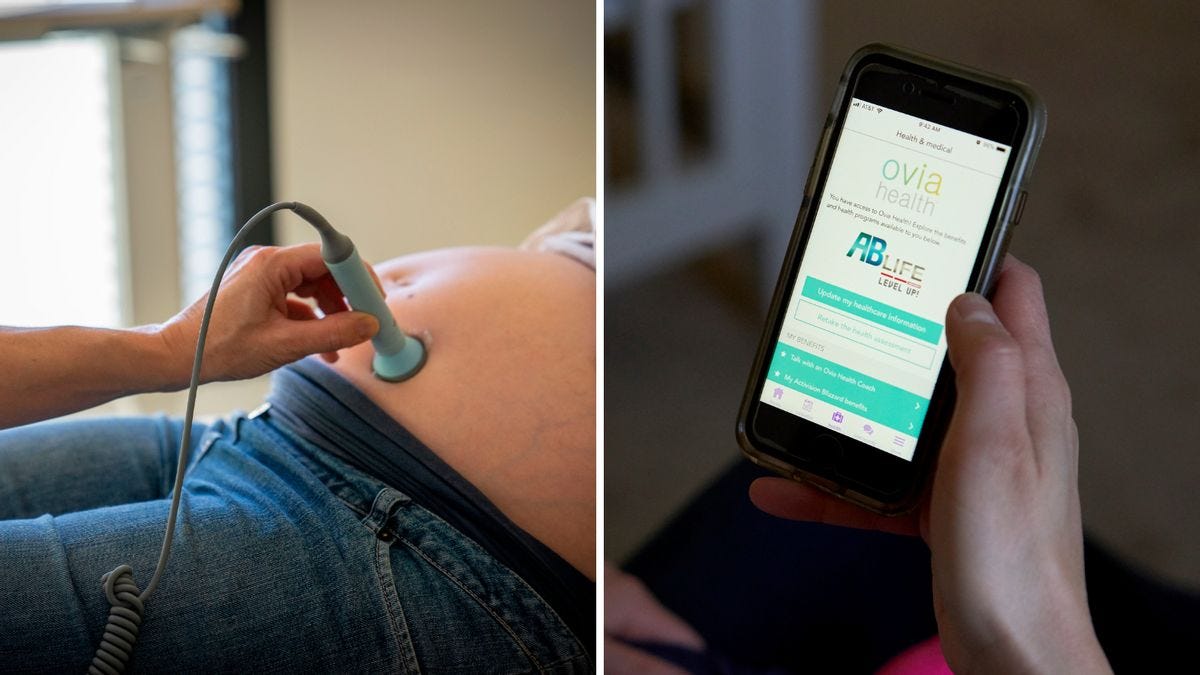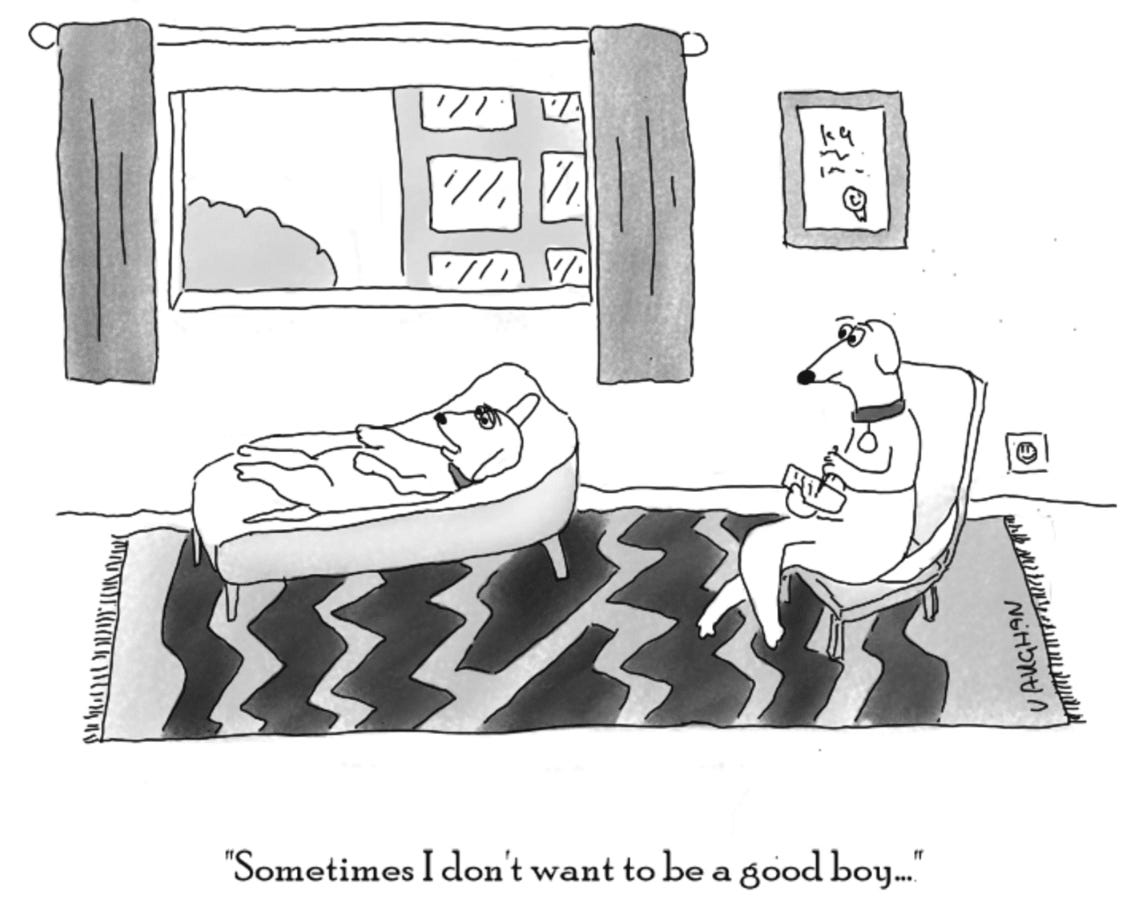How to survive a healthcare apocalypse: Top 10 tips from two critical care physicians.
You can't fix everything, but you can fix some things.
When we started Couch Nap, we wanted a major pillar of this newsletter to be a discussion of the macro forces affecting our healthcare system. We called it the “looming healthcare apocalypse” series, and planned a long docket of cheerful hits like maternity unit closures, private equity takeovers, pediatric bed shortages, and AI-driven decision making.1
And then came January 2025. The apocalypse finished looming and just plain arrived. CDC pages scrubbed of critical information, PEPFAR stopped, NIH grants paused, withdrawal from the WHO, RFK…there is too much to summarize here. We are grateful for the breaking news reporting by Inside Medicine, Abortion Every Day, the Vajenda, News Not Noise, and Your Local Epidemiologist.
The healthcare landscape today isn’t what it was a week ago. Maybe a lot of these destructive moves will be rolled back; maybe things will improve. But so far there is reason to believe evidence-based information will be difficult to access, grift will persist (see discount code “Bernie” for RFK’s anti-vax merch after his Senate questioning by Senator Sanders)2 and important initiatives will be eliminated.
As physicians who spend our time in the Emergency Department and ICU, we are no strangers to weathering difficult times. We know how to endure an enormous mess. Here are our top ten tips for surviving the current healthcare apocalypse:
Dr. Vicky’s top tips:
1. Own your data and minimize your exposure.
There are significant concerns that our personal data is being misused, especially when it comes to reproductive information. Apps people use for period, pregnancy, or ovulation tracking have location tracking; there is concern that these apps may be selling or giving that data to officials and organizations you’d rather not share it with. Additionally, there is talk of punishing women who self-manage abortion under the guise of improperly disposing of medical waste (if only they knew what happens daily on NYC streets and the sheer volume of phlegm people expectorate in broad daylight). I shudder to think if periods would be considered medical waste and how they would be distinguished from abortions.

Choose your tracking method deliberately. Use an analog system, your phone’s calendar, or if you continue with apps, disable location services. Extend this privacy audit to all your social media and applications - turn off location tracking, data sharing, and ad targeting. Limited data collection means limited surveillance (and bonus, less likely to be tempted to buy dumb stuff you don't need from ads that line the broligarchy’s pocket).
2. Front-load your healthcare.
There is reasonable concern that access to medications will be restricted in this administration. Some of this will come in the form of price increases from possible tariffs or from reversing prior executive orders aimed at lowering prescription drug costs.
Some of this will come in the form of consequences from legislative efforts to punish reproductive rights. For example, the Vajenda explains a clear thruline for how the political efforts to establish personhood may restrict IUD access for everyone, including those long past reproductive age.
Consider an IUD
If you thought about getting an IUD, don’t put it off. It’s not a perfect treatment, but it has been the single best thing I’ve done for my health. It got me through medical school and spares me from debilitating illness. If you have questions about IUDs, I am not a gynecologist but would be happy to speak to some of the data and my personal experience. They last 5-7 years, e.g. between 1-2 presidential administrations.
Refill your prescriptions
It stands to reason to consider stocking up on some chronic medications, especially when those fall under categories that may get restricted through legislation or if you are concerned that your insurance status may change, given the hiccups in Medicaid we have already witnessed. Check your expiration dates, but some things can last a while. Some pharmacies will also provide three month or longer supplies of medications. Consider low cost options like Cost-Plus Drugs (Mark Cuban’s pharmacy; not an endorsement, just an option I’ve utilized myself).
See your doctor
Similarly, if you are concerned about your insurance coverage changing, consider making some appointments earlier in the year rather than later. The worst that will happen is you are over-prepared.
Be up to date on your vaccinations
Vaccine access and availability is likely to evolve under this current administration, and infectious disease outbreak reporting has already been curtailed. Louisiana began limiting vaccines and education in 12/2024. As we wrote about in our last news roundup, in several states herd immunity has been severely threatened for younger children.
For older people, who may face significant cutbacks in care if the efficiencies in Medicare and Social Security come to pass, the shingles and RSV vaccine may be especially helpful. For newborns, the RSV vaccine is markedly successful in reducing hospitalizations and disease severity. Pregnant people can get the RSV vaccine as well (in lieu of their infant getting it), and anyone who will be caring for an infant should have a Tdap booster to protect the baby against pertussis, which is on the rise and can be fatal in babies. Adolescents should be up to date on the HPV (which prevents many cancers) and meningitis vaccines.
3. Move your body.
This is a marathon, unfortunately. It will demand longevity. Move your body, in whatever way feels good to you. For me it’s yoga, since trying not to fall onto my floor (from a distance of barely above my floor) taxes my mind enough to provide a brief reprieve from panic. For others, getting some anger out via boxing or a going on a run may work better.
Anger and fear coil us up into little painful balls; we need to expand, strengthen and support ourselves through crisis. The world will still be just as terrible if you (I) take 30 minutes off from doom-scrolling to move a bit, but you (I) will be better suited to deal with it.
4. Go small to go big.
Part of the point of the current wave of draconian and far reaching legislative actions is to stupefy through sheer scale and audacity. It’s impossible to take on everything at once. Individual efforts feel puny in the face of large catastrophes, but can comprise a robust collective response. I would zoom in, in order to zoom out. Small actions add up and often are more significant to their recipients.
When it comes to giving, we tend to have either more money, or more time to donate. It’s worth being strategic about which resource you’ve got.
If you’ve got time:
You can’t fix all of Congress, but you sure can pester your local elected officials. You can see if your local school district will do anything to promote tolerance and kindness toward LGBTQ+ and differently abled students, despite the nasty national rhetoric.
If you’ve got money:
I don’t know that boycotting Target and Walmart, who shamefully rolled back their DEI initiatives immediately, will hurt them as much as we would like. (Can’t wait to see what publicity gymnastics they engage in come Pride Month time!) But you can take your Target savings and donate it to a local animal shelter. Target won’t care one way or the other about those 5$, but it can buy a bag of litter for a kitten or a meal for an isolated senior who is worried about losing their safety net.
If you’ve got neither:
Well, you’ve got a phone. Amplifying the voices of the creators that are doing work you care about matters. Clicking the heart button, leaving a comment, or forwarding publications is meaningful engagement that teaches the algorithms that those publications are valuable. If you like a creator who is doing incredible work, such as
5. Curate your information ecosystem.
Be skeptical.
You wouldn’t buy your vegetables from an auto-body shop or let your dentist cut your hair. It’s hard when charismatic grifters spread misinformation online and when legislative efforts scrub sites like the CDC of pivotal health information. But it’s more important now than ever to identify trustworthy sources, and question how they come to their conclusions.
Are they staying in their lane? Are they ready to cite their sources? Are they ready to talk about the study design?
Correlation vs causation
A little questioning can go a long way. For example, every time someone uses the phrase “linked to,” consider if you are being fed a bunch of baloney. That phrase obscures a multitude of sins. Its typical use is to imply a correlation, which we all know does not mean causation. I lived in Boston for a while and could be said to be “linked to” a lot of khakis, nature, and sports, when I can solemnly swear I loathe and condemn all those things. You care about causation, not spurious links.
Study design
Additionally, what kind of study design are these people quoting when they say “studies show”? The gold standard is a double-blinded randomized controlled trial, which is sometimes impractical (we can’t randomize people to being hit by cars or having cancer). But did the study seek to control variables that may influence things, or at least match study participants for them? Comparing the effect of high heels, for example, in drag queens and in me means you will never get a useful answer, because the groups are so different in their experience level (I can barely walk in sneakers).
Study term and characteristics
Also, did the study have a large enough sample, detect a meaningful difference, or study the subjects for long enough? Statistical significance does not clinical significance make. You can have a difference that is statistically significant, like a reduction in blood pressure, which is still clinically meaningless (e.g. if the reduction is by 2 points). I don’t care about a study if there were only 8 subjects, or if some wellness claim is measured via a purely subjective metric (e.g. “feeling better”) or for only a short time (are we talking a cessation of headaches for two days? Two months? A lifetime?).
Of course there are exceptions to every rule. But these are a fine place to start. Anyone who seeks to be a source of influence (and especially those who seek to sell you something on the back of their influence) needs to be able to cite and explain their sources, and any methodological flaws therein. Otherwise they’re focused on siphoning your attention and your dollars, which are both better spent at your local soup kitchen or animal shelter.

Dr. Kristina’s top tips:
1. Get your financial house in order:
Take control of your financial future. Changes such as international tariffs or at the Consumer Financial Protection Bureau are happening on a larger scale. But there are moves you can make to protect yourself.
As someone who assumed debt to go to medical school and have been unable to complete the last hurdles for the public service loan forgiveness (PSLF) program, this is the time to pay close attention to what is happening with student loans. Because I believe transparency matters, I took on a total of $280,000 in debt to complete my medical training, went into a “low paying specialty” and have watched my loans exponentially increase to >$480,000. This is largely because I am not allowed to refinance the loans in order to maintain my eligibility for PSLF.
So yes, it feels like the proverbial carpet is being pulled out from under me as I hear the mutters about abolishing the Department of Education and likely selling loans to the highest bidder. Between a heavy clinical schedule, research (that is in shambles because of the NIH funding shenanigans) and educating the next generation of talented physicians, it has been hard to keep up with the speed of change and ongoing lawsuits.
I did what any self-respecting overwhelmed professional would do: I finally asked for help. There are actually people of specialize in navigating the PSLF maze! You do have to pay them (because we needed to add another bill) but they have been worth every penny for me. If you are need some experts in your corner, check out: Student Loan Planner or Student Loan Professor to see if they might help you navigate this wild ride.
2. Check in on your friends, they might not be ok:
As two lady doctors, we’ve been salty about the full-frontal assault on DEI. We also realize that the average person may not understand the breadth of DEI initiatives. Between executive orders and inflammatory accusations, DEI work has been dumbed down, obfuscated and ultimately reduced to more deeply disturbing racist, anti-LGBTQ+ and misogynistic nonsense.
DEI is about fundamental workplace protections that affect everyone. Think maternity leave policies that help families thrive. Consider accessibility requirements that ensure everyone can access buildings and services – from parents with strollers to elderly individuals with mobility needs to people using wheelchairs. It's about creating workplaces where talented people can contribute fully, regardless of background. These aren't "special considerations" – they're basic human needs that make our society function better for everyone. Even if certain policies don't affect you directly today, they might tomorrow, or they might be essential for someone you care about.
I’m thankful and proud every day of the female service members who are my partner’s colleagues and friends in the Navy. I can’t imagine what it feels like to be serving your country, often away from your own family, while hearing that your role in combat isn’t valued because of your gender or that your promotion was from DEI initiatives and not your hard work.
Much like we are struggling to internalize the assault on DEI, remember that people around you are also likely struggling. Reach out, connect, support each other. Remind your friends that we are still here together, and we are a community.
3. Get back to basics.
It’s simple: my oath as a physician obligates me to treat all patients regardless of their background to protect them and aid in public health. It is a privilege to be an essential part of a system that helps children receive necessary care.
Hearing that hospitals are no longer protected from raids by Immigration and Customs Enforcement (ICE) is incredibly disturbing. Hospitals, imperfect though they may be, are places of healing and should not feel threatening. This isn’t about immigration policy – it’s about fundamental human rights and public health.
When any population feels unsafe seeking medical care, it creates ripple effects that impact entire communities. We have to support vulnerable patients and advocate for those who might otherwise be marginalized.
More practically speaking here are some tips for what to do if/when ICE visits your clinic or hospital:
ICE is not the same as police
ICE must have a judicial warrant to enter private spaces or to question you about yourself, patients or coworkers
You are not obligated to give IDs or documents based on requests
Sometimes silence is the best strategy
Here is a great resource spelling out rights as a healthcare provider and your patient’s rights.
The unwavering dedication of my colleagues has been a source of hope in these unsettling times. As we face the specter of ICE intrusion into our healing spaces, I've been profoundly moved by the unanimous resolve among my fellow ED providers: we will continue delivering exceptional care to every single person who walks through our doors. Period. This isn't just professional courtesy – it's a deep-rooted conviction that transcends politics.
When my colleagues speak about this, their determination is palpable. In break rooms, at shift changes, during case discussions, the message rings clear: we are healers first. The solidarity across our ED community in defending this principle has transformed my personal anxiety into collective strength. Every patient deserves our absolute best, regardless of their documentation status, and watching my colleagues stand firm in this belief reaffirms why we chose this challenging but vital path in medicine.
4. Get your mind right.
Sure, Dr. Vicky talked about moving your body – which is great and all, but let's get real about what your brain needs. Because while yoga's fantastic, it will help but probably won't solve your existential crisis. That paralysis you're feeling? That stunned "is this really happening?" sensation. That’s not an accident – it's a feature, not a bug of our current reality.
Let me be blunt: my therapists have been my MVPs through residency (hello, first inklings of depression), fellowship (questioning all life choices, shout out to Courtney who is still my favorite), my partner's deployments (self-explanatory), and IVF (hormone-induced emotional rollercoaster, anyone?). It took me years to stop whispering about it, but here's the truth: therapy keeps me sane, and I'm done pretending otherwise. Yes, medicine still acts like seeking mental health support is a character flaw – because apparently, we're supposed to be emotionally invincible while dealing with daily trauma and impossible decisions.
Finding affordable therapy is about as easy as explaining insurance deductibles to patients (spoiler: it's not). And finding the right therapist? It's like dating, minus the free dinner. But here's the thing – you've got options. Build your emotional support community: those friends who get why that seemingly routine case hit different today, the battle-tested mentors who've survived their own professional dumpster fires, and your ride-or-die family (blood or chosen) who have to listen to your rants and still love you afterwards.
5. Joy isn’t optional, it’s tactical.
Let's be clear: this isn't some Live, Laugh, Love manifesto (I haven't lost my mind, there will never be one of those decorations in my home). But in these absolutely bonkers times, where the news cycle hits like a firehose of chaos, we need to get strategic about joy-hoarding. Yes, I said joy-hoarding. It's like doomsday prepping, but for your soul.

Case in point: After what felt like the normal goat rodeo in the emergency department, I got to cuddle the world's most enthusiastic ED service dog (bless her owner). This magnificent creature required tail surgery because she literally wagged it too hard. Let that sink in – she's so committed to joy she broke her own tail. If that's not a role model for these times, I don't know what is.
That ten-minute snuggle session was my reset button after 9 hours of the usual ED chaos symphony: performing mental gymnastics, teaching residents while trying not to sound like I'm teaching residents, and explaining for the fifth time that yes, the flu can in fact, make you that sick (there is still time to get your annual flu shot). That pure moment of furry zen followed me home like an emotional takeout container.
Small joys are your psychological armor. Collect them. Share them. Amplify them. Because sometimes, winning is just finding the dog who wagged too hard.
Want to share your own tactical joy strategies? (Bonus points if they involve animals who are similarly overcommitted to happiness.)
If the health system is remotely recognizable in the coming months, those are still coming. Hold tight.
How is this a real sentence and not an Ionesco play?
Disclaimer: The content provided in Couch Nap is for educational and entertainment purposes only. It is not intended as medical advice, diagnosis, or treatment. It does not establish a doctor-patient relationship. Always consult with your healthcare professional regarding any medical concerns or decisions. The views and opinions expressed here are our own and do not represent the positions, policies, or opinions of our employers or any affiliated organizations. While we strive for accuracy, the information presented here may not apply to your unique situation.








Disabled person here. Please omit the phrase "differently abled" from your vocabulary.
That phrase is widely condemned in the disabled community because of the way it minimizes our daily struggles and barriers. There are things I literally can't do anymore, which an able-bodied person can easily do. It's not mean or dispiriting to acknowledge my struggles and call me disabled.
There's a lot of stigma around the words disability/disabled. The right way to fix it is to normalize disability, rather than using euphemistic language to obscure the reality faced by people with disabilities and further hide our challenges from view.
Even in the neurodivergent community, "differently abled" is viewed negatively. Sure, there's things an autistic or ADHD brain might do better, like memorizing facts or connecting patterns. But there's also very real struggles that we ND folks deal with; like issues with socializing, attention, sensitivities, and isolation.
Thank you. I’ve been doing everything you suggested, starting right after the election.
I would also add that as a person in recovery it’s more important than ever to guard my sobriety with extra care.
I was 6 years sober and relapsed right after the 2016 election (there’s an obvious “teleconnection” here). It took me 4 years to climb back on the wagon.
I got sober again in October 2020 by attending five 12-step Zoom meetings a day, IOP, and therapy. (By the way, my relapse started with booze. I then discovered Kratom, the worst, most dangerous substance I’ve ever taken, and I did ALL the drugs. Eight days of withdrawal, rocking back and forth in a chair, unable to control my limbs. Took me six months to walk around properly. Total nightmare.)
I’m 4.5 years clean and sober again, and I’ll be damned if I’m going to let this ridiculous administration take me out without a fight.
I’m sending your post to as many people as I can. Thank you.